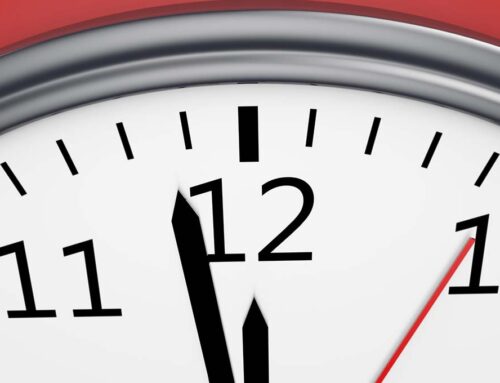When most people think about filing for bankruptcy, they imagine it as a last resort—a financial lifeline to stop the collection calls and get a fresh start. But while bankruptcy provides critical relief to consumers, it doesn’t always mean a total loss for banks and lenders. In fact, banks have found a way to make a profit, even when their customers are struggling and declaring bankruptcy.
This might sound counterintuitive. You’d think that when you declare bankruptcy, especially Chapter 7 bankruptcy (which erases most debts), lenders would take a big financial hit. But that’s often not the case. The truth is, banks and other lenders can sell off your debt long before you even file for bankruptcy. They often sell your debt to third-party debt buyers at steep discounts in what are called “future flow agreements.” These agreements allow banks to minimize their risk and shift the responsibility for collecting on debts to companies that specialize in squeezing value out of these accounts—sometimes even after the debt is legally discharged in bankruptcy.
In this post, we’ll uncover the hidden financial practices behind debt sales, explain how future flow agreements work, and reveal how banks profit from your bankruptcy filing. We’ll also take a closer look at how this impacts consumers long after their bankruptcy case is over, with issues like wrongful debt collection, credit reporting errors, and the emotional toll of dealing with aggressive debt buyers.
The Business of Selling Consumer Debt
Before we can understand how banks profit from bankruptcy, it’s important to get a clear picture of how consumer debt is typically handled. When you open a credit card account, take out a personal loan, or finance a car, your creditor expects you to repay that debt in full, with interest. But if you fall behind on payments, there comes a point when the lender has to decide whether to keep chasing you for the money or to cut their losses and move on.
This decision point is known as charge-off, which usually happens after a debt is 180 days past due. When a debt is charged off, the creditor moves it from their active accounts to a “bad debt” column for accounting purposes. But a charge-off doesn’t mean the debt disappears. Far from it. The lender often turns to a third-party debt buyer—a company that specializes in collecting delinquent accounts.
Debt buyers purchase charged-off debt at a steep discount. Depending on the age of the debt and how much documentation is included, debts can be sold for as little as 7 cents on the dollar, but they may be sold for up to 25 cents if the debt is more recent or comes with full records. For example, if you owe $1,000 to a credit card company, they might sell your debt for $70 to $250. The debt buyer then tries to collect the full amount from you, making a profit if they can recover more than what they paid for it.
The practice of selling off delinquent debt is routine. But it doesn’t stop when someone files for bankruptcy. In fact, for banks, selling debts during bankruptcy can be a lucrative business.
What Happens When You File for Bankruptcy?
When you file for bankruptcy, you’re seeking legal protection from your creditors, and the way your debts are handled depends on the type of bankruptcy you choose.
- Chapter 7 bankruptcy, also known as liquidation bankruptcy, involves selling off your non-exempt assets to pay creditors. Once your assets are sold, most remaining unsecured debts are wiped out. In over 95% of Chapter 7 cases, there are no assets to sell, so creditors get nothing.
- Chapter 13 bankruptcy sets up a court-ordered repayment plan, allowing you to pay back some or all of your debts over three to five years. Once you complete the payment plan, any remaining unsecured debts are discharged.
In both cases, the bankruptcy process typically involves notifying your creditors, who are then legally required to stop trying to collect on those debts. But for many banks and credit card issuers, bankruptcy is the perfect time to sell your debt—either to reduce their losses or to profit from a future flow agreement.
What Are Future Flow Agreements?
Future flow agreements (FFAs) are deals between banks and debt buyers in which the bank agrees to sell off debts as they reach a certain stage, such as when they are charged off or when a customer files for bankruptcy. These agreements allow banks to offload large portfolios of debt in bulk, usually at a deep discount, to companies that specialize in collecting delinquent debts.
For example, a credit card issuer might enter into a future flow agreement with a debt buyer to automatically sell any credit card accounts that become delinquent or are included in a bankruptcy filing. This means that as soon as someone files for bankruptcy, the debt is sold to a third-party buyer, often for a fraction of its original value.
While selling debt after a Chapter 13 filing makes some sense (since the debtor will be making payments through the court), future flow agreements are used in Chapter 7 cases as well. This is surprising because Chapter 7 typically results in debts being wiped out, so why would a company buy debt that’s destined to be discharged?
The answer lies in how debt buyers operate.
Why Would Anyone Buy Discharged Debt?
Debt buyers take a calculated risk when they purchase debt involved in a Chapter 7 bankruptcy case. Even though the debt will likely be discharged, there are several reasons why buying discharged debt can still be profitable:
- Waiting for the Right Time: Some debt buyers hold onto the debt for years, waiting for the debtor to recover financially. Once the bankruptcy is far in the past, some consumers may be willing to settle old debts to clean up their credit reports or avoid the hassle of potential legal action.
- Credit Reporting Errors: After a bankruptcy discharge, the debts should be reported as zero balance and included in the bankruptcy. However, errors can occur, leaving the discharged debts showing as outstanding on credit reports. In these cases, a consumer might pay the debt buyer just to get the negative entry removed.
- Reselling the Debt: Sometimes, debt buyers will resell the debts they’ve purchased to other companies. In the process, the debt might change hands several times, leading to confusion about the legal status of the debt and the buyer’s right to collect.
- Mistakes and Illegal Collection: Even though it’s illegal, some debt buyers attempt to collect on debts that have been discharged in bankruptcy. They may send threatening letters or make aggressive phone calls, betting that consumers won’t realize their rights under bankruptcy law.
In fact, the Consumer Financial Protection Bureau (CFPB) has reported numerous cases of debt buyers engaging in illegal collection practices on discharged debts. In these cases, the debt buyer either knows the debt was discharged or simply ignores the bankruptcy filing altogether.
Legal Implications of Debt Sales After Bankruptcy
Once a debt is discharged in bankruptcy, creditors and debt buyers are legally barred from collecting on it. Under the Bankruptcy Code, the discharge order acts as an injunction, which means creditors are forbidden from pursuing any further collection activity. Violating this order can lead to penalties and sanctions.
Additionally, the Fair Debt Collection Practices Act (FDCPA) provides consumers with protection from unfair and abusive collection practices. Debt buyers must follow strict rules about how they can communicate with consumers, and attempting to collect on a discharged debt is a clear violation of the law.
However, enforcement is not always straightforward. Debt buyers may argue that they purchased the debt without knowledge of the bankruptcy filing or that the previous owner failed to notify them. This creates gray areas in enforcement and leaves some consumers vulnerable to harassment.
Impact on Consumers
Even after their debts are discharged, consumers can face ongoing challenges related to debt sales. Here are some common issues:
- Incorrect Credit Reporting: After a bankruptcy discharge, your debts should no longer appear as unpaid or outstanding on your credit report. But some creditors or debt buyers fail to update this information, leading to credit report errors. This can hurt your credit score and make it difficult to secure loans or new credit in the future.
- Illegal Collection Efforts: Some debt buyers engage in illegal collection efforts, sending letters or making phone calls to demand payment on discharged debts. This is against the law, but some consumers pay simply to avoid further hassle.
- Emotional Toll: Dealing with debt buyers after bankruptcy can take a significant emotional toll. The stress of repeated collection attempts, credit report issues, and the uncertainty about whether the debt has truly been cleared can weigh heavily on those trying to move forward.
Take These Steps To Protect Yourself
Fortunately, there are steps you can take to protect yourself from these tactics:
- Check your credit report: After your bankruptcy is discharged, request a copy of your credit report from the three major credit bureaus (Equifax, Experian, and TransUnion) to ensure that all your discharged debts are properly reported as zero balance.
- Dispute errors: If you find any errors, you can file a dispute with the credit bureaus to have the inaccurate information removed. You can also file a complaint with the Consumer Financial Protection Bureau (CFPB) if the issue isn’t resolved.
- Know your rights: If a debt buyer tries to collect on a discharged debt, remember that this is illegal. You can send a cease-and-desist letter to stop further contact, and consider consulting an attorney if the problem persists.
- Keep records: Document any communication with debt collectors or credit reporting agencies, and keep a copy of your bankruptcy discharge order. This can help if you need to take legal action to stop illegal collections or fix credit report errors.
While bankruptcy offers a fresh start for many, it doesn’t necessarily mark the end of your financial journey with debt. Banks and lenders often sell debts through future flow agreements, sometimes profiting from your bankruptcy filing. These debt sales can lead to long-term complications for consumers, from credit reporting issues to illegal collection efforts.
Understanding how these agreements work and knowing your rights can help protect you from being caught in a debt buyer’s trap. Checking your credit report, disputing errors, and staying informed are critical steps in safeguarding your financial future after bankruptcy.
ABOUT THE AUTHOR
Meet Jay
 Since I became a lawyer in 1995, I’ve represented people with problems involving student loans, consumer debts, mortgage foreclosures, collection abuse, and credit reports. Instead of gatekeeping my knowledge, I make as much of it available at no cost as possible on this site and my other social channels. I wrote every word on this site.
Since I became a lawyer in 1995, I’ve represented people with problems involving student loans, consumer debts, mortgage foreclosures, collection abuse, and credit reports. Instead of gatekeeping my knowledge, I make as much of it available at no cost as possible on this site and my other social channels. I wrote every word on this site.
I’ve helped thousands of federal and private student loan borrowers lower their payments, negotiate settlements, get out of default and qualify for loan forgiveness programs. My practice includes defending student loan lawsuits filed by companies such as Navient and National Collegiate Student Loan Trust. In addition, I’ve represented thousands of individuals and families in Chapter 7 and Chapter 13 bankruptcy cases. I currently focus my law practice solely on student loan issues.
I played a central role in developing the Student Loan Law Workshop, where I helped to train over 350 lawyers on how to help people with student loan problems. I’ve spoken at events held by the National Association of Consumer Bankruptcy Attorneys, National Association of Consumer Advocates, and bar associations around the country. National news outlets regularly look to me for my insights on student loans and consumer debt issues.
I’m licensed to practice law in New York and California and advise federal student loan borrowers nationwide.
continue reading





